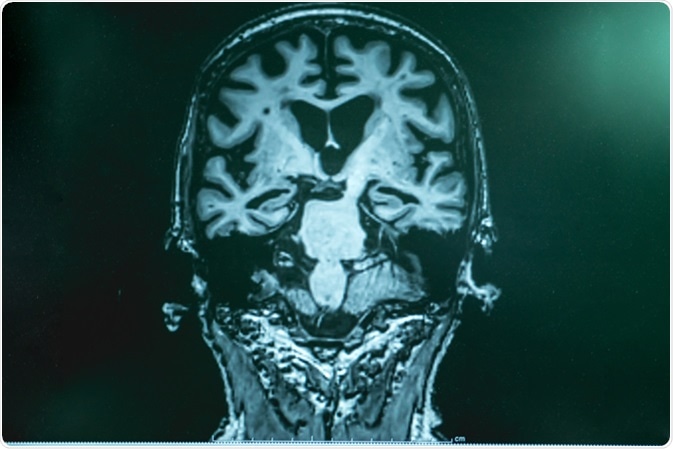Mixed dementia, also known as multifactorial dementia or “Dementia-multifactorial”, represents a neurological condition characterized by simultaneous presence of more than one type of dementia.
What is Mixed Dementia?
Mixed dementia is considered as the most common form of dementia in elderly people. In a majority of cases, mixed dementia involves a combination of Alzheimer’s disease and vascular dementia. However, a number of other combinations are also possible; for example, it is often characterized by the symptoms of Alzheimer’ disease and Lewy body dementia.
Scientific studies evaluating characteristic changes in the brains of dementia affected people have revealed that most of the people who are over age of 80 suffer from mixed dementia caused by Alzheimer’s disease, vascular dementia, and/or other neurodegenerative diseases.
Such high occurrence of mixed dementia in elderly people suggests that age-related changes in the body may be associated with the pathogenesis of this neurodegenerative disorder. In addition, presence of vascular dementia-related symptoms indicates that vascular risk factors, such as high blood pressure, altered heartbeat, diabetes and high cholesterol, may also increase the risk of developing mixed dementia.

Alzheimer's disease with MRI. Image Credit: Atthapon Raksthaput / Shutterstock
Symptoms of Mixed Dementia
Since mixed dementia involves symptoms of more than one pathological condition, it is difficult to clinically separate them from each other. Therefore, symptoms of mixed dementia often vary from person to person, depending on the types of dementia present.
To effectively identify mixed dementia symptoms, it is important to study the pathological features of individual contributor, as well as to understand at what level contributing pathologies influence each other.
Symptoms of Alzheimer’s disease
Alzheimer disease is an irreversible, progressive, neurodegenerative disorder that accounts for almost 60-80% of all dementia cases. In cases of mixed dementia, cognitive decline due to Alzheimer’s pathology varies from person to person and significantly depends on other pathological conditions involved.
The main symptom of Alzheimer’s disease is loss of memory and learning difficulties. Other symptoms include impaired cognitive ability such as difficulty thinking and understanding, delusion, confusion, disorientation, lack of concentration, as well as other symptoms.
Behavioral problems such as mood changes, altered personality, suspicious behavior, restlessness; as well as psychological problems such as depression, hallucination, paranoia, etc.
Vascular and Lewy Body Dementia
Vascular dementia is broadly characterized by progressive loss of memory and cognitive decline. Vascular risk factors that damage blood vessels, reduce blood circulation, and decrease oxygen and nutrient supply to the brain can contribute significantly to the pathogenesis of vascular dementia. Blockage of a brain artery due to stroke also increases the risk of developing the illness.
The symptoms in vascular dementia are very much similar to Alzheimer’s; while memory loss is more prominent in case of Alzheimer’s disease, vascular dementia is mostly characterized by attention deficit, lack of reasoning, problems with organizing thoughts or actions, slow thinking process, confusion, etc.
On the other hand, Lewy body dementia represents the second leading form of dementia characterized by severe cognitive decline and movement difficulties similar to Parkinson’s disease. Abnormal deposition of a protein alpha-synuclein in the brain causes Lewy body dementia. These abnormal deposits, known as Lewy bodies, are also found in the brains of Alzheimer’s patients, suggesting that dementia patients frequently have these two disorders together.
Most common symptoms of Lewy body dementia include lack of concentration, reduced alertness, shaking, slow and rigid movements, hallucination, mood changes, fainting, drowsiness, lack of sleep, confusion, and memory loss.
Diagnosis of Mixed Dementia
In case of mixed dementia, the degree of involvement of different neuropathological conditions can be best diagnosed through brain autopsy. According to the Rush Memory and Aging Project, which involves long-term cognitive assessments followed by eventual brain autopsy, 94% of the study participants who had dementia were also diagnosed with Alzheimer’s disease.
Of these Alzheimer’s patients, 54% showed pathological features of other forms of dementia in brain autopsy. The most frequent coexisting pathological features include presence of blood clot or other indicators of vascular injuries. The second leading coexisting pathology is the presence of Lewy bodies.
In general, diagnosis of dementia is mainly done by taking medical history of the patient, followed by physical examinations and neurological tests. Physical examination entails measurement of vital parameters, such as blood pressure and heart rate, as well as neurological tests that include assessment of body balance, sensory response, reflexes, and other cognitive functions.
Clinical methods that are also useful in diagnosing dementia include cognitive and neuropsychological tests; laboratory examinations of blood or other body fluids for the detection of hormones, vitamins, and other biochemical parameters; brain scans such as CT, MRI, and PET to detect stroke and other related vascular injuries; psychiatric assessment to detect mental health condition; and genetic tests to detect genetic risk factors related to dementia.
Further Reading
Last Updated: Feb 26, 2019